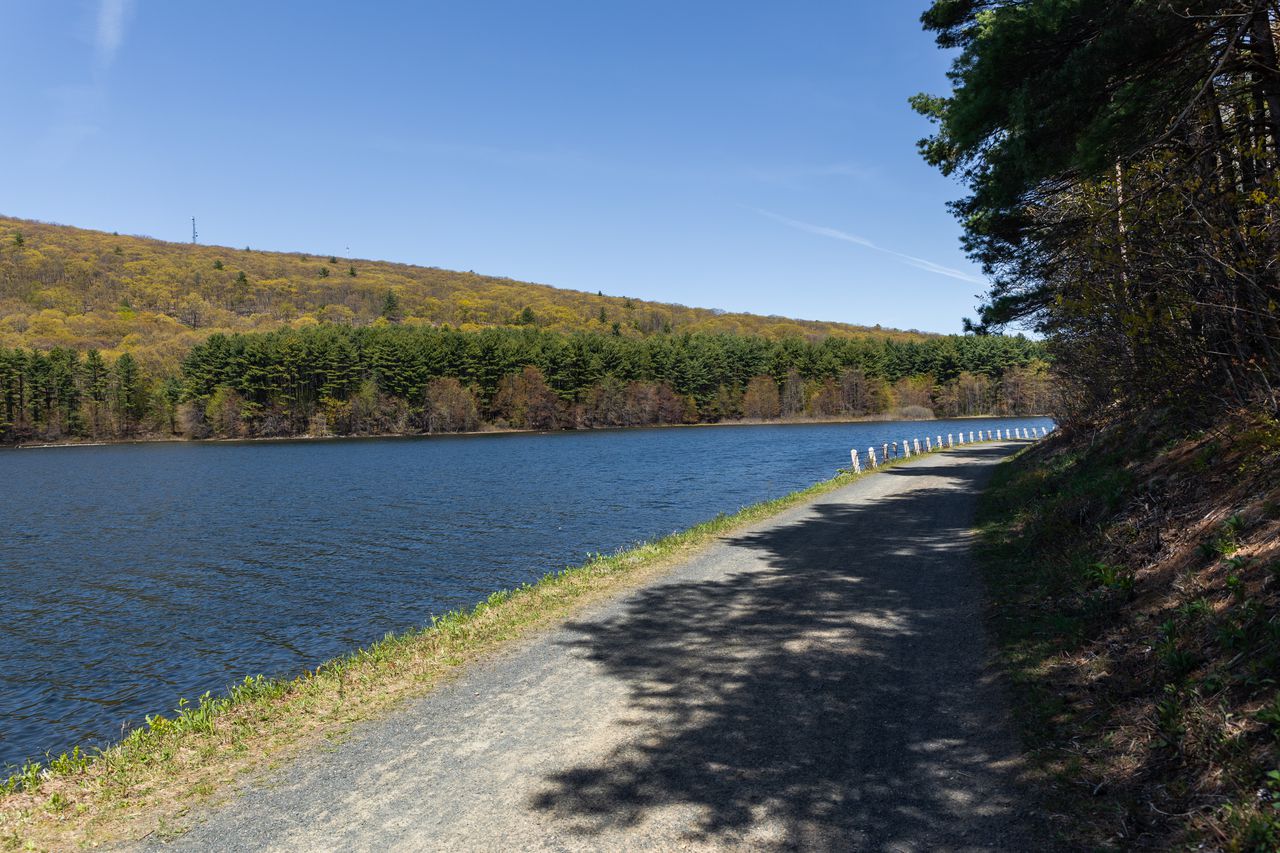[ad_1]
HOLYOKE — The Whiting Street Reservoir Study Committee released a final report in November that said the reservoir should be used as a place for passive recreation into the future while remaining a potential water source for the city.
The City Council formed the committee in 2019 after it recognized Holyoke Water Works faced significant costs to repair the reservoir’s spillway. The committee was tasked with reviewing what it would cost to maintain the reservoir and repurpose the area all the while “ensuring that reasonable environmental considerations are maintained.”
The seven-person committee reviewed current environmental laws, regulations, protections and how they affected how the reservoir was currently used and neighboring properties. The process included a series of public meetings and considering “potential new resources including expanded uses.”
The report emphasized protecting Whiting Street Reservoir through restrictive conservation measures.
According to the report, the reservoir was built around 1890 to store water from a smaller reservoir to the east. Whiting Street owned a massive parcel that stretched along the foot of Mount Tom.
Holyoke Water Works owns and operates the facility, and the Water Works Commission controls access and uses. Though a nonpotable water resource, Whiting Street Reservoir must abide by “strict” safety and environmental regulations.
Permitted activities inside Whiting Reservoir include walking, jogging, hiking, biking, nature photography and other passive pursuits. Swimming, fishing, boating, dog walking, horseback riding, motor vehicles and alcoholic drinks are forbidden.
“Structural safety of the reservoir is an important issue since Interstate 91 is only 1,000 feet due east and downstream from the Whiting Street Reservoir dam and main outfall, and dozens of residences are directly downstream of the reservoir,” the report states.
The study offered several key recommendations, such as making sure the area is available for Holyoke residents for passive recreation through conservation restrictions while keeping its 550 million gallons of water capacity available to the city, should a future need arise.
The committee also recommended creating a statement and a plan in order to help direct the area’s use and manage its resources, implementing it with an “Areawide Management Council” that includes neighboring property owners to help “coordinate area management.”
In talks with the committee, the Water Works clarified that the City of Holyoke would need the reservoir’s water capacity in the future.
“Furthermore, regulatory agencies that oversee public water supply are also likely to require water filtration at all City reservoirs,” the study states. “The filtration requirements will allow the (Whiting Street Reservoir) to maintain its standby public water supply status or to meet standards if pushed into service to meet water supply needs.”
A spillway renovation project is slated for 2023 was dubbed a “significant financial commitment,” along with installing a filtration system.
“This means that public access, and the type and intensity of public recreational uses, will need to be planned, controlled, and limited to protect the reservoir,” the report reads.
[ad_2]
